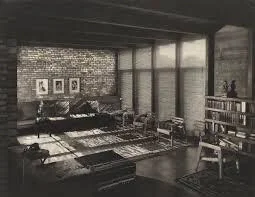The Definitive Work of Architect: Paul Schweikher
Paul Schweikher was born in Denver, Colorado in 1903 to a family of musicians. He originally trained at the University of Colorado for a year (1921–22) before marrying his wife. He moved with her to Chicago, Illinois and studied at The Art Institute of Chicago while working for the firm of Lowe & Bollenbacher. Schweikher worked his way up from a clerk to a construction supervisor. After two-and-a-half years at the firm, Schweikher left to join the David Adler practice. Among the projects that Schweikher worked on was the William McCormick Blair Estate in Lake Bluff, Illinois.
He later studied at the Armour Institute of Technology before again transferring to, and receiving a degree from, the Yale School of Architecture. He returned to Chicago after his schooling in 1930 and collaborated with George Fred Keck and Philip Maher. He quickly rose to prominence, and his works were included in an exhibition at the Museum of Modern Art in 1933. His work was also exhibited at the Century of Progress International Exposition. Schweikher joined the practice of Lamb and Elting in 1934.
In 1953, Schweikher was named chairman of the Yale School of Architecture, following the retirement of George Howe. Five years later, he resigned from the university to take a position as head of the Carnegie School of Architecture. He retired in 1970 and moved to Sedona, Arizona, where he opened a small practice. Schweikher died in 1997.
Edited by Will Bruder, Dan Fitzpatrick, and J.C. Gabel

